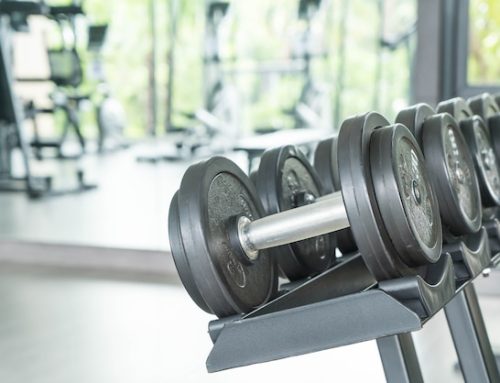The Controversial Use of Smelling Salts in Weightlifting and Boxing
Weightlifting and boxing are two of the toughest sports in the world. Athletes who take part in these sports push their bodies to the limit, often relying on the power of their muscles and the drive of their minds to succeed. However, some athletes and coaches resort to using short-term stimulants to enhance their performance, including smelling salts. While smelling salts are commonly used in both weightlifting and boxing, there is a growing concern about their safety and legality.
What are Smelling Salts?
Smelling salts are a mixture of ammonium carbonate and perfume or essential oils. The ammonia stimulates the nasal passages and triggers the body’s fight-or-flight response, increasing alertness and heart rate, and providing a temporary boost of energy. The use of smelling salts has been documented for centuries, with athletes, soldiers, and medical professionals using them for a variety of purposes.
The Use of Smelling Salts in Weightlifting
Weightlifting is a sport that requires a lot of mental and physical strength. Athletes need to stay focused and alert during a competition to perform at their best. Many weightlifters use smelling salts to boost their performance because of the immediate, short-term effects it provides. Smelling salts can help a weightlifter get into the right mindset, increase their heart rate, and give them a boost of energy to lift heavier weights.
However, the use of smelling salts in weightlifting has raised some concerns about the safety of the athletes. They can cause nausea, headaches, and dizziness, which can be detrimental to an athlete’s health. Furthermore, the use of stimulants is against the regulations of some weightlifting federations, and athletes caught using smelling salts may face penalties or disqualification.
Smelling salts are a type of chemical compound that can be used as a stimulant to help increase alertness, focus, and energy levels. They are commonly used in sports and weightlifting to provide a quick burst of energy and improve performance.
When inhaled, smelling salts release ammonia gas, which irritates the nasal passages and triggers an involuntary inhalation reflex. This reflex causes the body to take in a deep breath, which can increase oxygen flow to the lungs and brain and stimulate the nervous system.
In weightlifting, smelling salts are often used before heavy lifts or during competitions to help increase energy and focus, and to overcome feelings of fatigue or dizziness. However, the use of smelling salts is controversial and has been banned by some sports organizations, including the World Anti-Doping Agency (WADA), due to concerns over their safety and potential for abuse.
While smelling salts can provide a temporary boost in energy and performance, they can also cause negative side effects such as headaches, dizziness, and nausea, and can be dangerous if used improperly. It’s important to use caution when using smelling salts and to follow recommended dosages and safety guidelines. It’s also important to note that smelling salts are not a substitute for proper training and preparation, and should not be relied on as a long-term solution for improving performance.
The Use of Smelling Salts in Boxing
Boxing is a sport that requires a lot of mental and physical strength, too. Boxers need to stay alert, focused, and quick on their feet during a fight. Many boxers use smelling salts to enhance their performance and get an edge over their opponents. Smelling salts can help a boxer feel more alert, focused, and energetic, giving them a boost of confidence that can make all the difference in a fight.
However, the use of smelling salts in boxing has been banned since 2016. The World Anti-Doping Agency (WADA) added smelling salts to its list of banned substances, citing its potential health risks and performance-enhancing effects. Boxers caught using smelling salts can face suspension, fines, or even disqualification.
Why Did Boxing Ban Smelling Salts?
Boxing banned smelling salts because they are considered a performance-enhancing drug (PED) and a safety hazard. Smelling salts can mask the symptoms of fatigue, pain, and injury, empowering boxers to continue fighting even if they experience physical and mental exhaustion. Furthermore, smelling salts can cause adverse health effects, such as fainting, seizures, and cardiac arrest, especially if used in excessive amounts.
Boxing officials and medical professionals are also concerned about the long-term effects of smelling salts on boxers’ health. Repeated use of smelling salts can lead to respiratory problems, brain damage, and addiction, all of which can compromise a boxer’s safety and career.
The Alternatives to Smelling Salts
While smelling salts may offer temporary benefits in weightlifting and boxing, they are not worth the risk. Fortunately, there are other legal and safe ways to enhance performance without compromising health and ethics. Some of the alternatives to smelling salts include:
– Proper nutrition and hydration: A well-balanced diet and adequate hydration can provide the body with the fuel and nutrients it needs to perform at its best.
– Mental training and visualization: Visualization and positive self-talk can help athletes stay focused, motivated, and confident during a competition.
– Breathing exercises: Breathing exercises can help athletes regulate their heart rate, manage stress, and maintain focus.
– Legal supplements: Some supplements, such as caffeine and creatine, are legal and safe and can provide a performance boost without major side effects.
| Alternative | Description |
|---|---|
| Deep breathing exercises | Taking deep breaths can increase oxygen flow to the lungs and help stimulate the nervous system, providing a natural boost in energy and mental alertness. |
| Caffeine | Consuming caffeine through coffee, tea, or energy drinks can provide a quick boost in energy and mental alertness. However, it’s important to use caffeine in moderation and avoid consuming too much, as it can cause negative side effects and disrupt sleep patterns. |
| Pre-workout supplements | Pre-workout supplements are designed to provide a combination of caffeine, amino acids, and other ingredients that can help increase energy, focus, and performance during exercise. However, it’s important to use pre-workout supplements in moderation and follow recommended dosages, as some can be potentially harmful if used improperly. |
| Mental visualization | Visualization exercises can help improve focus and mental clarity, and can be particularly effective when combined with deep breathing exercises. Visualizing successful outcomes can also help increase motivation and confidence during workouts or athletic events. |
| Music | Listening to upbeat music can help increase energy and motivation during workouts or athletic events, and can help distract from feelings of fatigue or discomfort. |
| Natural remedies | Some natural remedies, such as essential oils or herbal supplements, can provide a mild boost in energy and mental clarity. However, it’s important to consult with a healthcare professional before using any natural remedies, as some can interact with medications or cause negative side effects. |
In Conclusion
Smelling salts may seem like a quick and easy way to enhance performance in weightlifting and boxing, but the risks outweigh the benefits. Athletes who use smelling salts not only violate the rules and ethics of their sports but also jeopardize their health and careers. Instead of relying on short-term stimulants, athletes should focus on proper training, nutrition, and mental preparation to achieve success.






